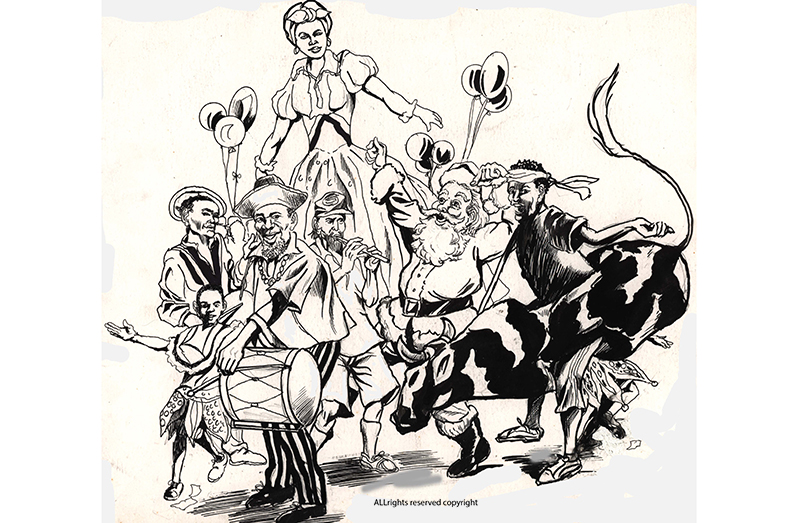To explore Christmas, one of Guyana’s most persuasive holidays, we must examine whether it was indeed slavery that imposed Christianity on Afro-Creole Guyanese or whether an awareness of a similar story existed before the plantation-era forms of Christianity, with its contradictions and justifications for the religious scams that upheld slavery. From all reliable records available to researchers, the legend and celebration of a similar character and festival did exist among Africans. This was the God Ausar, or Osiris, who was slain, resurrected, and became the God of judging the dead. This predates the concept of Christianity by ages and entered the religious realms of Europe much later. The Christianity of the slave era was, however, original in its devious dictates, creating a mock doctrine of contradictions to justify slavery and indoctrinate generations of Africans born on the plantations of the Americas.
The celebration of Christmas is also rooted in the seasonal harvest (agricultural) ‘solstice’ ceremonies of rebirth, including expressions of cleansing farmlands and households and sharing festivals of food. Such tribal banquets could not persist without the social script of goodwill towards fellow humans and the hope of a spiritual concept proposing cosmic change and positive continuity. Thus, Christ’s birth became significant—necessary today in a human world that appears to be in ideological decline. In spheres where awareness of Christianity is prominent, Christmas as a professed ideal requires a greater-than-life interpretation to engage. Such a concept rests with the inner ideals of the Christmas pageant, a tradition in the ancient pre-Christian world connected to Ausar-Osiris. In my memory as a child, Christmas and Easter pageants were significant.

We are confronted with the intent to prove that humankind is a shared responsibility despite deceptions, disagreements, and materialistic overtures. The lack of principles challenges the necessary goodwill that is expected—even without charity. However, we must commit to this at some stage, for life throws conflict and disappointment, not only from strangers but often more painfully from our own blood. Suffice it to say that Christmas, as a celebration of birth and hope, encourages us to re-equip ourselves and persist towards our dreams and commitments within the symbolic newness and continuity that the season inspires.
I was always indirectly taught from my early youth that with Christmas, one must contemplate bidding farewell to the passing year and simultaneously consider the birth of the coming year, as the two ceremonies are entwined and must be wisely guarded. Traversing this path of safeguarding requires the synchronisation of the family unit, guided by its heads. From Christmases past, we have learned its lessons, a teaching life of its own, and experience kicks in, bringing wisdom to the modern management of resources.
In closing, I’ve seen improvements in some of our national masquerade bands. Let us enjoy our national holiday foods, representing every group of the people who came to this land. Look at the season as a moment of evaluation, both for Christmas and Kwanzaa, as we condition our objectives and responsibilities for 2025.



.jpg)









